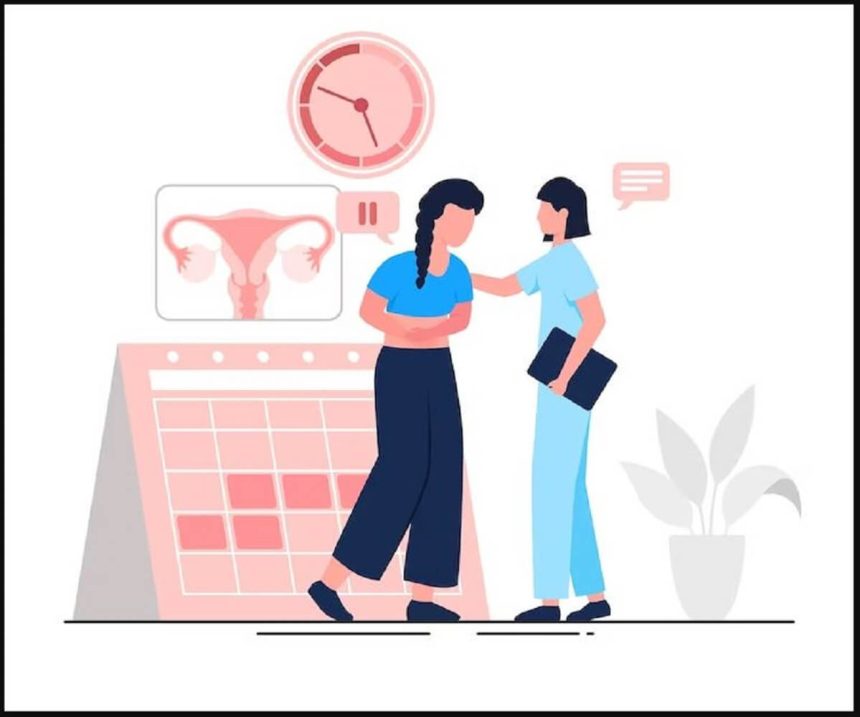Cervical Health Post Menopause: A Comprehensive Guide for Senior Women
Protecting Your Cervical Health Beyond Menopause: Expert Advice and Strategies
Have you considered how menopause can impact your cervical health? As women transition into the post-menopausal phase, it’s crucial to remain vigilant about cervical health. Dr. Surpreet Kaur Sandhu, a respected gynecologist in Sarita Vihar, New Delhi, emphasizes the importance of ongoing cervical care even after menopause. This guide is dedicated to enlightening senior women about maintaining cervical health, outlining preventative measures, and addressing common concerns. Let’s explore effective ways to safeguard your cervical well-being during this significant stage of life.

Post-menopause brings a new phase of health awareness, emphasising the importance of cervical care for lasting well-being.
Dr. Surpreet Kaur Sandhu
Understanding Cervical Changes Post-Menopause
Recognizing how menopause affects cervical health.
- Hormonal changes and their impact
- Common cervical health issues post-menopause
- Importance of regular health screenings
Regular screenings and pap smears
The role of consistent screenings in maintaining cervical health.
- Recommended frequency of Pap smears and HPV tests
- Interpreting test results
- Working with healthcare providers for regular check-ups
Lifestyle Factors Affecting Cervical Health
How lifestyle choices influence post-menopausal cervical health.
- Diet and nutrition for cervical health
- Impact of smoking and alcohol consumption
- Importance of physical activity
Managing Post-Menopausal Symptoms and Cervical Health
Addressing symptoms that can indirectly affect cervical well-being.
- Vaginal dryness and its management
- Hormone replacement therapy and its implications
- Strategies for symptom relief
Preventative Care and Vaccinations
Exploring preventative measures, including vaccinations.
- HPV vaccination for older women
- Preventing infections and promoting overall health
- Importance of regular gynecological exams
Educating and Empowering Senior Women
Empowering senior women through education and awareness.
- Access to reliable information
- Community support and resources
- Advocacy for women’s health post-menopause
Staying Proactive About Cervical Health
Encouraging proactive health measures for long-term wellness.
- Recognizing warning signs
- Seeking timely medical advice
- Embracing a holistic approach to health care
“Apollo Delhi resonates with excellence—find solace in the care of the best gynae, a stalwart crafting health with precision and compassionate expertise.”
Dr. Surpreet Kaur Sandhu
Conclusion
Maintaining cervical health post-menopause is a vital aspect of overall well-being. As Dr. Surpreet Kaur Sandhu highlights, regular screenings, informed lifestyle choices, and an understanding of post-menopausal changes are key to protecting your cervical health. Senior women are encouraged to stay proactive, informed, and engaged with their health care providers to ensure a healthy and fulfilling post-menopausal life. Remember, your health journey continues beyond menopause, and taking charge of it is both empowering and essential.
FAQs
Q: How often should post-menopausal women have cervical screenings, according to Dr. Surpreet Kaur Sandhu?
Following their doctor’s advice, post-menopausal women should continue getting cervical screenings on a regular basis—typically every three to five years.
Q: Are post menopausal women at risk for cervical cancer?
Yes, post-menopausal women can still be at risk for cervical cancer, making regular screenings and HPV tests important for early detection.
Q: Can lifestyle changes improve cervical health after menopause?
Lifestyle changes like a balanced diet, quitting smoking, and regular exercise can positively impact cervical health and overall wellness in post-menopausal women.
What common cervical health issues do post-menopausal women face?
Common issues include vaginal dryness, thinning of the cervical tissues, and an increased risk of infections due to hormonal changes.
Q: How does hormone replacement therapy (HRT) affect cervical health post-menopause?
HRT can have implications for cervical health, including changes in cervical cells; it’s important to discuss the benefits and risks with a healthcare provider.
Q: Is the HPV vaccine recommended for post-menopausal women?
The HPV vaccine is generally targeted at younger women, but post-menopausal women should consult their doctor to discuss if it’s beneficial for them.
Q: What symptoms should prompt post-menopausal women to consult a doctor for cervical health?
Symptoms like unusual vaginal bleeding, discharge, or discomfort should prompt a consultation with a doctor for a cervical health evaluation.
Q: Can regular exercise reduce the risk of cervical health issues after menopause?
Regular exercise can contribute to overall health, which indirectly supports cervical health, but it’s not a direct preventive measure for cervical issues.
Q: What cervical health issues should post-menopausal women be aware of?
Post-menopausal women should be vigilant about issues such as vaginal dryness, thinning of the cervical tissues, and a higher risk of cervical dysplasia. Dr. Sandhu emphasises the importance of monitoring any unusual symptoms, like abnormal bleeding or discharge.
Q: How often do post-menopausal women need a pap smear?
Dr. Surpreet Kaur Sandhu recommends that post-menopausal women generally continue to have Pap smears every three to five years, but the frequency can vary based on individual health history and previous test results.
Q: Can lifestyle changes impact cervical health after menopause?
Yes, lifestyle changes can positively affect cervical health. Dr. Sandhu advises maintaining a healthy diet, avoiding smoking, and engaging in regular physical activity to support overall reproductive health.
Q: What are the signs of cervical cancer in post-menopausal women?
Key signs of cervical cancer in postmenopausal women include abnormal vaginal bleeding, pelvic pain, pain during intercourse, and unusual discharge. Dr. Sandhu stresses the importance of prompt medical consultation if these symptoms occur.
Q: Is it necessary to continue cervical screenings after a hysterectomy?
Dr. Sandhu notes that the need for cervical screenings after a hysterectomy depends on the type of hysterectomy performed and the woman’s medical history. If the cervix is not removed or if there’s a history of cervical cancer, screenings may still be necessary.
Q: Can physical exercise influence cervical health post-menopause?
While physical exercise does not directly impact cervical health, Dr. Sandhu explains that it contributes to overall well-being, which can indirectly benefit cervical health by improving immune function and hormonal balance.
Q: Are there any specific dietary recommendations for maintaining cervical health post-menopause?
Dr. Sandhu recommends a diet rich in antioxidants, vitamins C and E, and phytoestrogens, which can be beneficial for maintaining overall reproductive health and potentially supporting cervical health.



